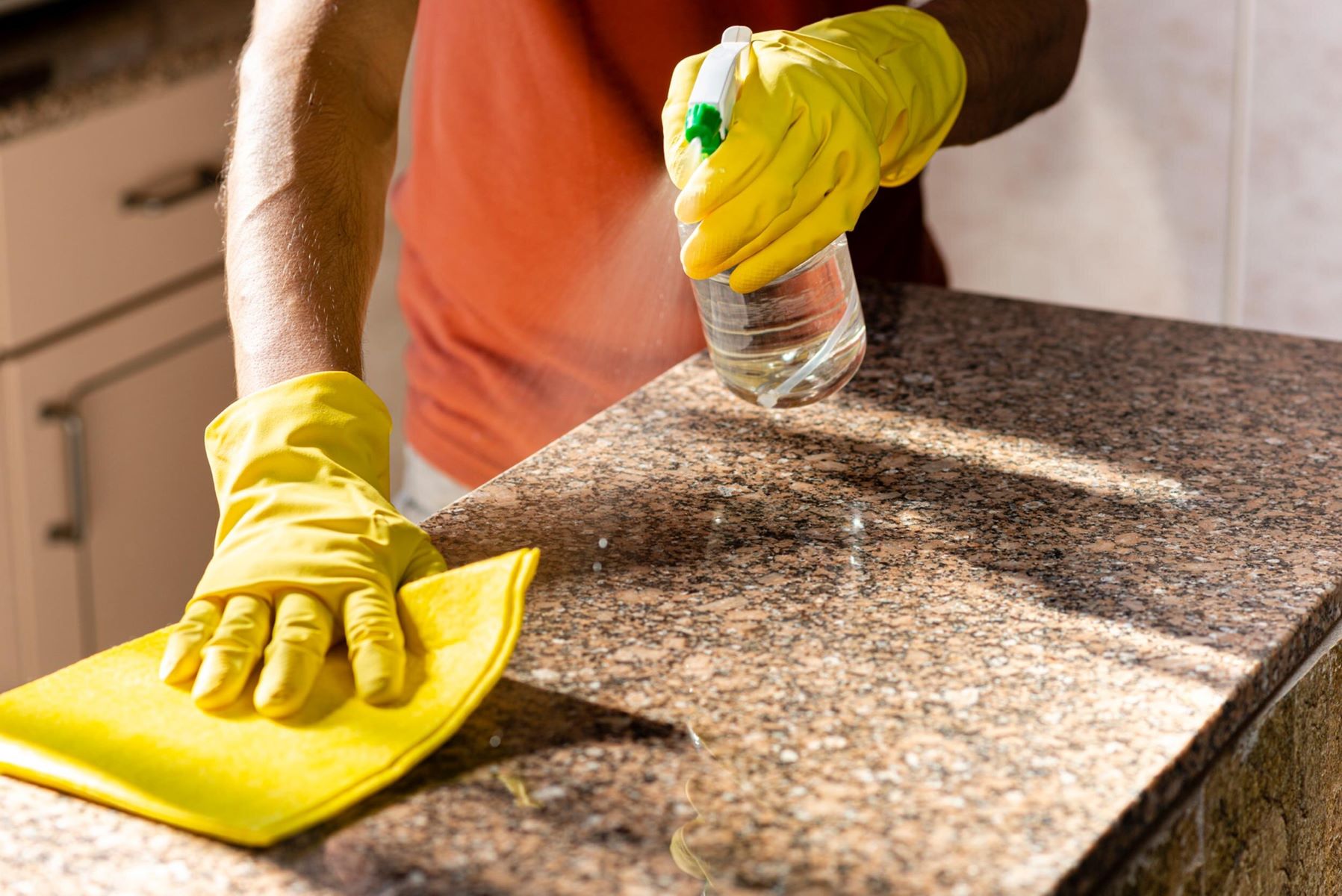

Articles
How Do You Clean Granite Kitchen Countertops
Modified: April 22, 2024
Discover effective methods for cleaning and maintaining your granite kitchen countertops in our comprehensive articles. Keep your countertops looking spotless and pristine!
(Many of the links in this article redirect to a specific reviewed product. Your purchase of these products through affiliate links helps to generate commission for Storables.com, at no extra cost. Learn more)
Introduction
Granite kitchen countertops are a popular choice among homeowners due to their exceptional durability and timeless beauty. Made from natural stone, granite countertops can withstand the demands of daily kitchen activities, while adding sophistication to any space. However, like any other surface, they require regular cleaning and maintenance to keep them looking their best.
In this article, we will explore the best practices for cleaning and maintaining granite kitchen countertops. Whether you already have granite countertops or are considering installing them in your kitchen, this guide will provide you with valuable insights and tips to ensure their longevity and preserve their stunning appearance.
Before we dive into the cleaning process, let’s gain a better understanding of granite countertops.
Key Takeaways:
- Proper care and maintenance, including daily cleaning, stain removal, and avoiding common mistakes, are essential for preserving the beauty and longevity of granite kitchen countertops. By following these guidelines, homeowners can enjoy their stunning and durable countertops for years to come.
- Incorporating additional tips such as using cutting boards, avoiding direct sunlight, and regularly checking the condition of the sealant can further enhance the maintenance of granite countertops. These simple practices contribute to the long-term beauty and functionality of this luxurious natural stone.
Read more: How Do You Cut Granite Countertops
Understanding Granite Countertops
Granite is a natural stone that is formed from cooled magma. Its unique composition of minerals, including quartz, feldspar, and mica, gives it its distinct appearance and durability. Granite is known for its strength, heat resistance, and scratch-resistant properties, making it an ideal material for kitchen countertops.
Each granite slab is unique, with its own patterns, colors, and textures, which adds to its aesthetic appeal. From sleek and uniform patterns to bold and dramatic veining, granite offers a wide range of options to suit any kitchen style.
It’s important to note that while granite is highly durable, it is not invincible. Improper cleaning methods or using harsh chemicals can damage the stone’s surface or remove its protective sealant, leaving it vulnerable to stains and scratches.
Now that we understand the basics of granite countertops, let’s move on to how to prepare for cleaning them.
Preparing to Clean Granite Countertops
Before you start cleaning your granite countertops, it’s important to gather the necessary supplies and take a few precautions to ensure that you achieve the best results without causing any damage to the stone.
Here’s what you’ll need:
- Mild dish soap or granite cleaner: Avoid using abrasive or acidic cleaners that can dull the surface or etch the stone.
- Microfiber cloth or sponge: These gentle materials will not scratch the granite surface.
- Warm water: Use lukewarm water to mix with the cleaning solution.
- Sealing agent: If your granite countertops are not sealed or if the sealant is worn out, you may need to apply a sealing agent to protect the stone.
Once you have gathered the supplies, follow these steps to prepare your granite countertops for cleaning:
- Clear the countertops: Remove any items, such as appliances, utensils, or decorative objects, from the surface of the countertops. This will allow you to clean the entire surface thoroughly and prevent any damage to the items.
- Dust the countertops: Use a soft cloth or microfiber cloth to gently remove any loose dirt, crumbs, or debris from the countertops. This will prevent scratching the surface during the cleaning process.
- Test the cleaning solution: Before applying any cleaner to the entire surface, it’s advisable to test it on a small, inconspicuous area of the granite. This will ensure that the cleaner does not cause any discoloration or adverse reactions with the stone.
By taking these steps to prepare your granite countertops, you can ensure that the cleaning process will be safe and effective. Now let’s move on to establishing a daily cleaning routine for your granite countertops.
Daily Cleaning Routine
Maintaining a daily cleaning routine for your granite countertops is key to preserving their beauty and longevity. By following these simple steps, you can keep your countertops looking pristine:
- Wipe up spills promptly: Accidents happen, but it’s essential to clean up any spills on your granite countertops as soon as possible. This will prevent the liquid from seeping into the stone and causing stains or damage. Use a soft cloth or paper towel to blot the spill, avoiding any scrubbing motion that can scratch the surface.
- Use a gentle cleaner: Mix a small amount of mild dish soap or a specialized granite cleaner with warm water. Dampen a microfiber cloth or sponge in the cleaning solution and gently wipe the surface of the countertops. Avoid using abrasive materials or harsh chemicals that can harm the stone. Rinse the cloth or sponge frequently to remove dirt and grime.
- Dry thoroughly: After cleaning, make sure to dry the granite countertops thoroughly to prevent water spots or streaks. Use a clean, dry microfiber cloth to wipe away any excess moisture from the surface.
- Buff the surface: To restore the natural shine of your granite countertops, gently buff the surface with a dry microfiber cloth. This will remove any residue and leave your countertops looking polished and lustrous.
Following these daily cleaning steps will help keep your granite countertops free from dirt, stains, and bacteria. However, there may be instances where stubborn stains require additional attention. Let’s explore how to remove stains from granite countertops.
Use a pH-neutral cleaner and a soft cloth to clean granite countertops. Avoid using harsh chemicals or abrasive sponges, as they can damage the surface. Wipe up spills immediately to prevent staining.
Removing Stains from Granite Countertops
Even with diligent maintenance, stains can sometimes appear on granite countertops. The key to successfully removing stains is to address them as soon as possible. Here are some effective methods for tackling common stains:
1. Oil-based stains: If your granite countertop has been stained by oil or greasy substances, you can create a homemade poultice to draw out the stain. Mix baking soda with a small amount of acetone to form a paste. Apply the paste to the stain, cover it with plastic wrap, and let it sit overnight. Gently remove the poultice the next day and clean the area with a mild granite cleaner.
2. Water-based stains: Stains caused by water or other liquids can typically be removed by gently scrubbing the affected area with a mixture of hydrogen peroxide and a few drops of ammonia. Rinse thoroughly and dry the countertop after cleaning.
3. Ink stains: Ink stains can be tricky to remove, but you can try using a cotton ball soaked in rubbing alcohol. Gently dab the stained area, being careful not to spread the ink further. Rinse the countertop with warm water and dry it thoroughly.
4. Acidic stains: Acidic substances like fruit juices, vinegar, or certain cleaning products can etch the surface of granite countertops. If you notice an etching stain, it’s best to consult a professional for repair.
Remember, prevention is the best way to avoid stains. Promptly wipe up any spills and avoid placing hot or acidic items directly on the countertop. Additionally, maintaining a regular sealing schedule will help protect against stains and damage.
While knowing how to remove stains is essential, it’s equally important to avoid common mistakes that can harm your granite countertops. Let’s explore some of these mistakes and how to avoid them.
Read more: How Do You Paint Granite Countertops
Avoiding Common Mistakes
Proper care and maintenance are crucial for preserving the beauty and integrity of your granite countertops. Avoiding common mistakes can help you prevent damage and keep your countertops looking their best for years to come. Here are some common mistakes to avoid:
1. Using harsh or abrasive cleaners: Avoid using harsh chemicals, abrasive cleaners, or scrubbing pads on your granite countertops. These can scratch or dull the surface of the stone. Stick to mild dish soap or specialized granite cleaners that are specifically designed for use on natural stone surfaces.
2. Not using coasters or trivets: Granite is heat-resistant, but extreme temperature changes can potentially cause damage. Always use coasters or trivets to protect your countertops from hot pans, dishes, or cookware.
3. Using acidic or citrus-based cleaners: Acidic substances like vinegar, lemon juice, or citrus-based cleaners can etch the surface of granite countertops. Avoid using these products and opt for pH-neutral cleaners instead.
4. Skipping regular sealing: Granite countertops should be sealed approximately once a year or as recommended by the manufacturer. Sealing helps protect the stone from stains and makes it easier to clean. Do not skip this important step to maintain the longevity of your countertops.
5. Allowing spills to sit: Promptly wipe up any spills on your granite countertops to avoid staining. Acidic substances, oils, and liquids can penetrate the surface if left unattended, leading to difficult-to-remove stains.
6. Using abrasive sponges or brushes: When cleaning your granite countertops, choose soft cloths, microfiber towels, or non-abrasive sponges. Avoid using scrubbing pads or brushes that can scratch the surface.
By avoiding these common mistakes and following proper cleaning and maintenance techniques, you can protect your granite countertops and keep them looking beautiful for years to come. Additionally, there are other tips you can incorporate into your routine to further enhance the maintenance of your granite countertops. Let’s explore these additional tips.
Additional Tips for Maintaining Granite Countertops
In addition to regular cleaning and avoiding common mistakes, there are several additional tips you can follow to maintain the beauty and longevity of your granite countertops:
1. Use cutting boards and chopping blocks: While granite is highly resistant to scratches, it’s still a good practice to use cutting boards or chopping blocks when working with knives or other sharp utensils. This will help protect the surface of your countertops from potential damage.
2. Avoid sitting or standing on the countertops: Granite countertops are designed to withstand the weight of everyday kitchen activities, but it’s best to avoid sitting or standing on them. Excessive weight or pressure in a concentrated area can cause cracks or damage to the stone.
3. Regularly clean up crumbs and debris: To prevent accumulation of dirt and debris, make it a habit to regularly sweep or wipe off crumbs and debris from your granite countertops. This will help maintain a clean and polished appearance.
4. Consider using granite-specific polish: Granite-specific polish can be used periodically to enhance the shine and luster of your countertops. Follow the manufacturer’s instructions for application and frequency.
5. Avoid using acidic or citrus-based cleaners: As mentioned earlier, acidic substances can cause etching on granite surfaces. Be cautious when using household cleaners that contain acidic ingredients and opt for pH-neutral granite cleaners instead.
6. Protect your countertops from direct sunlight: Prolonged exposure to direct sunlight can cause the color of your granite countertops to fade over time. Consider using window treatments or UV-blocking film on windows to minimize sun damage.
7. Regularly check the condition of the sealant: Over time, the sealant on your granite countertops may wear off. To maintain its protective properties, regularly check the condition of the sealant. If water droplets no longer bead on the surface, it may be time to reseal your countertops.
By following these additional tips, you can ensure that your granite countertops remain in optimal condition and continue to enhance the beauty of your kitchen. Regular maintenance and care are essential to preserving the value and longevity of this beautiful natural stone.
Conclusion
Granite kitchen countertops are a luxurious and durable addition to any home. With proper care and maintenance, you can ensure that your countertops retain their stunning appearance and functionality for years to come. By implementing a regular cleaning routine, addressing stains promptly, avoiding common mistakes, and following additional tips for maintenance, you can keep your granite countertops in pristine condition.
Remember to use gentle cleaning solutions, avoid abrasive materials, and always test any new products or methods on a small, inconspicuous area before applying them to the entire surface. Promptly wipe up spills, use cutting boards, and protect your countertops from extreme heat or direct sunlight. Additionally, make sure to regularly check the condition of the sealant and reseal if necessary.
By following these guidelines and incorporating them into your cleaning and maintenance routine, you can enjoy the timeless elegance and durability of your granite countertops for years to come. Not only will your countertops continue to enhance the aesthetic appeal of your kitchen, but they will also provide a functional and long-lasting workspace for all your culinary endeavors.
So take the time to care for and maintain your granite countertops, and they will continue to be a beautiful and practical centerpiece in your kitchen for many years to come.
Frequently Asked Questions about How Do You Clean Granite Kitchen Countertops
Was this page helpful?
At Storables.com, we guarantee accurate and reliable information. Our content, validated by Expert Board Contributors, is crafted following stringent Editorial Policies. We're committed to providing you with well-researched, expert-backed insights for all your informational needs.
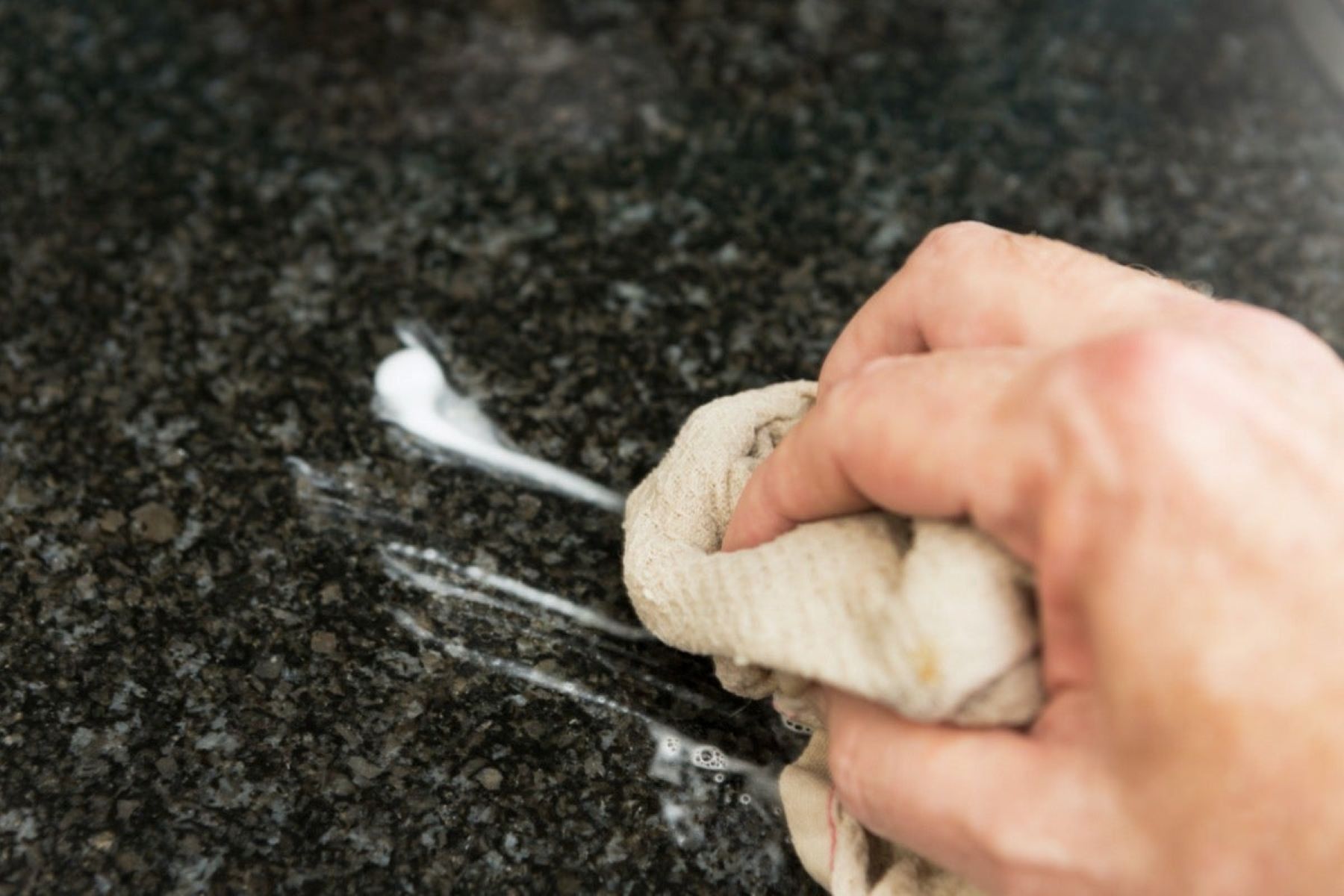
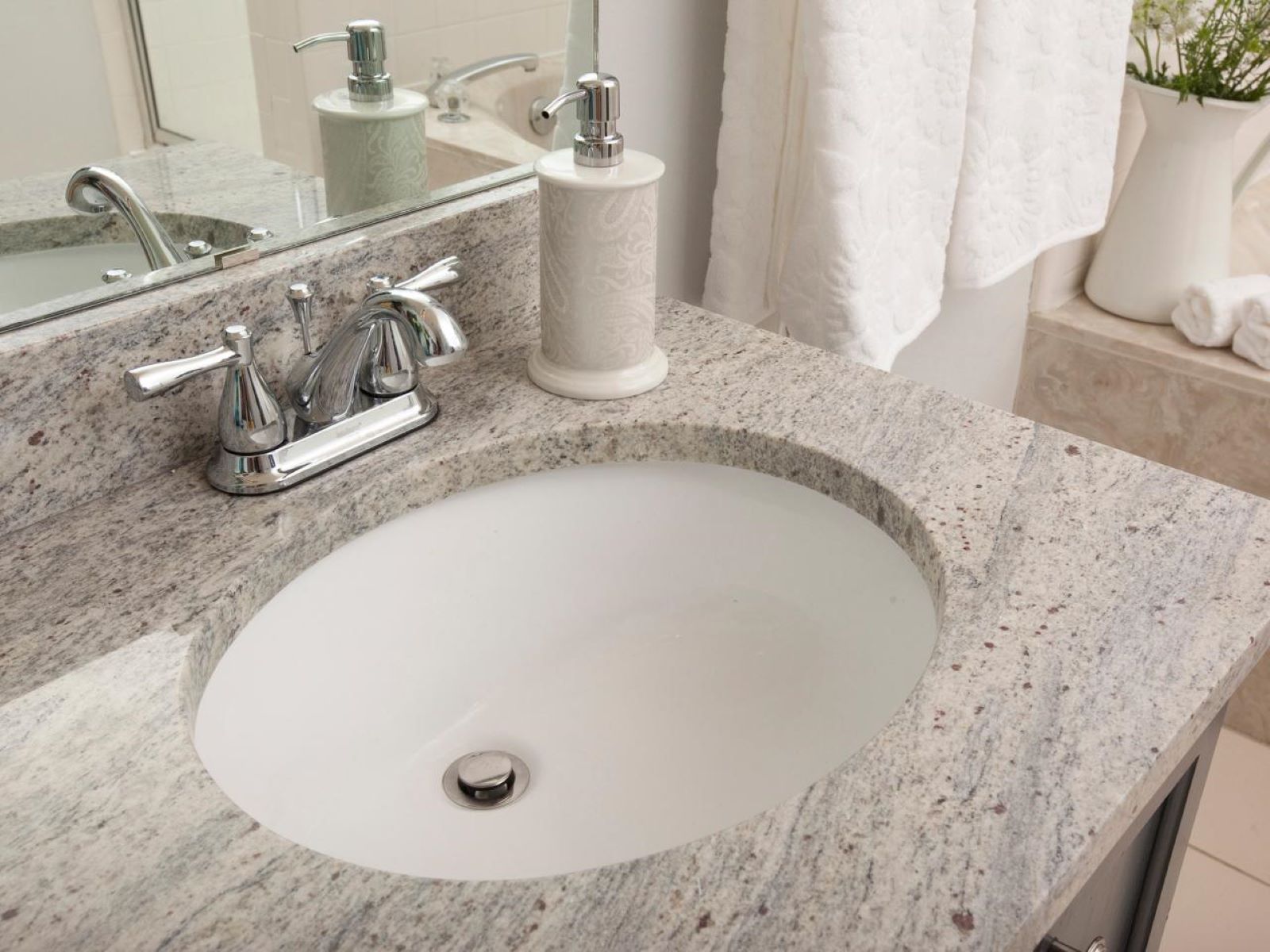
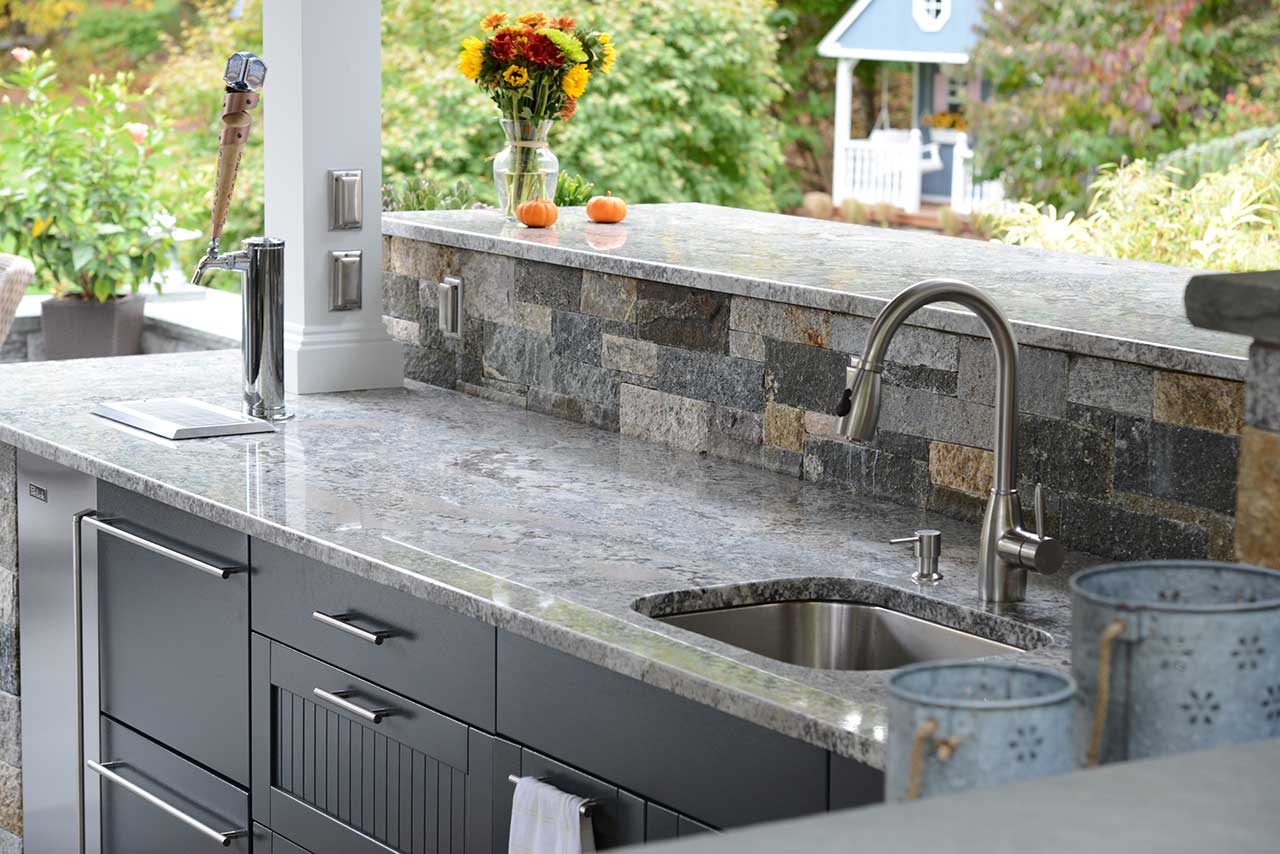
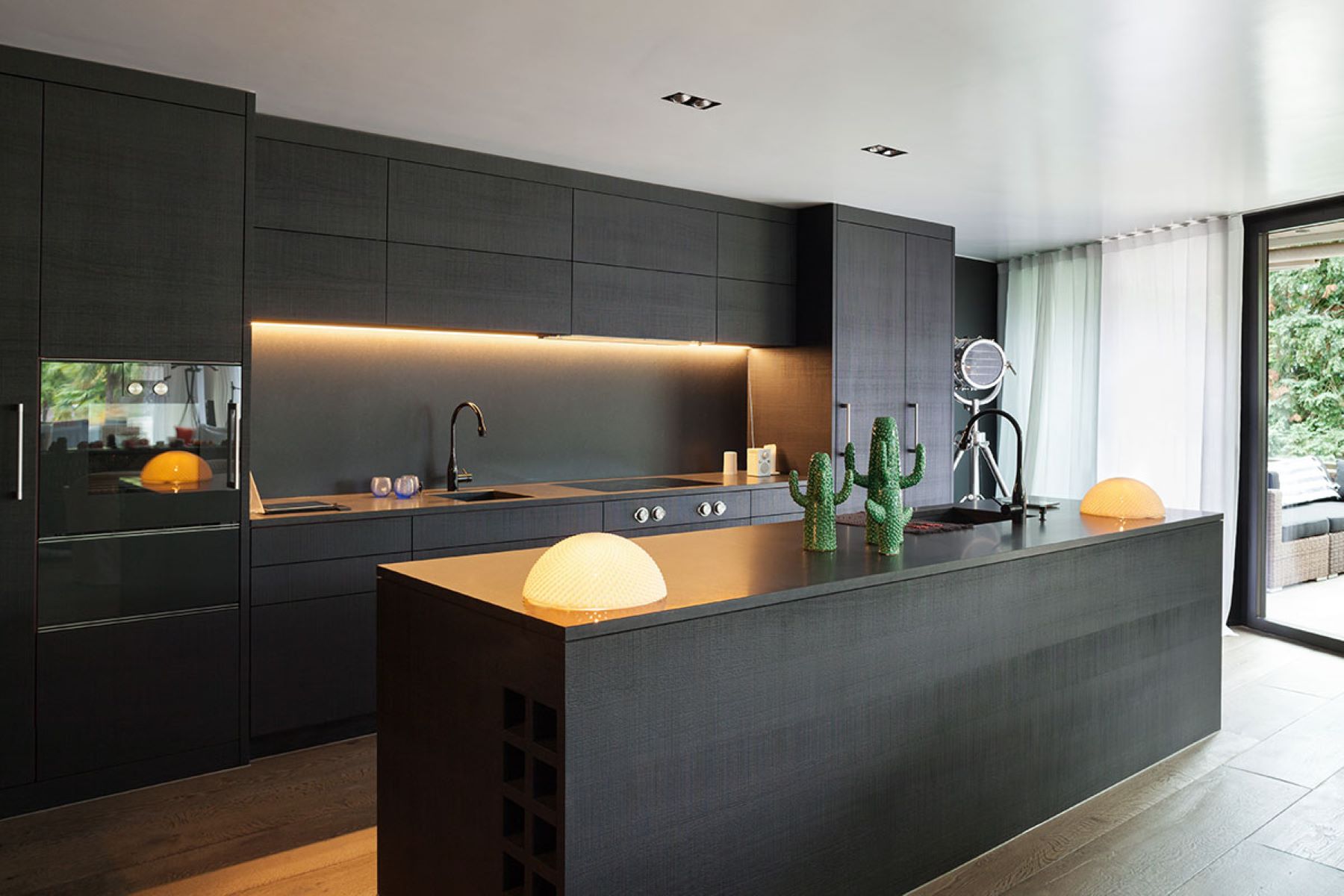
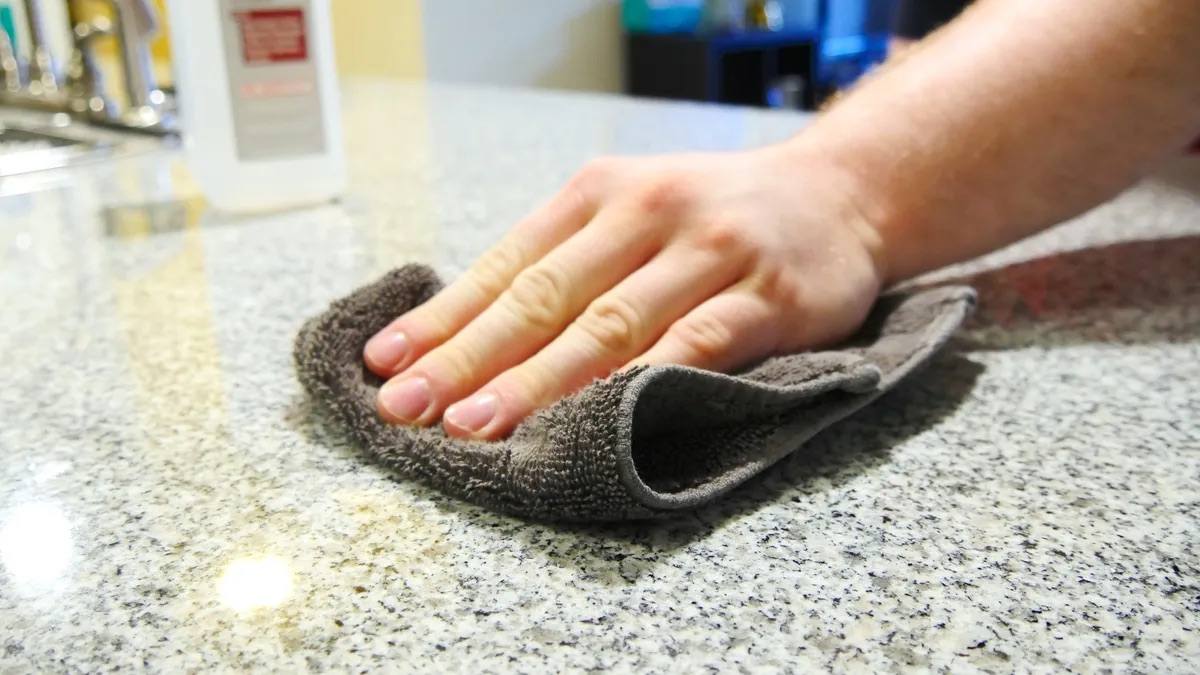
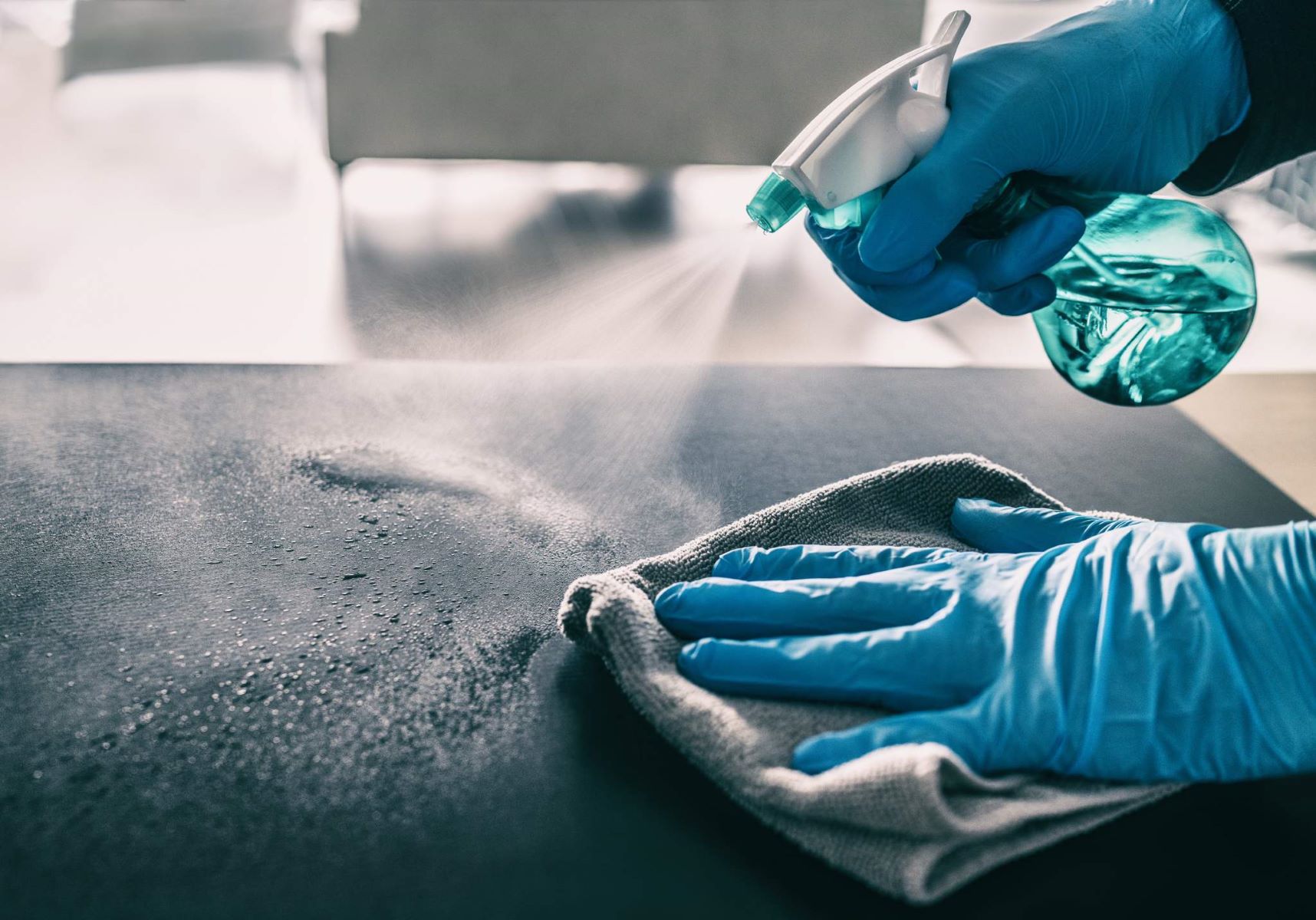
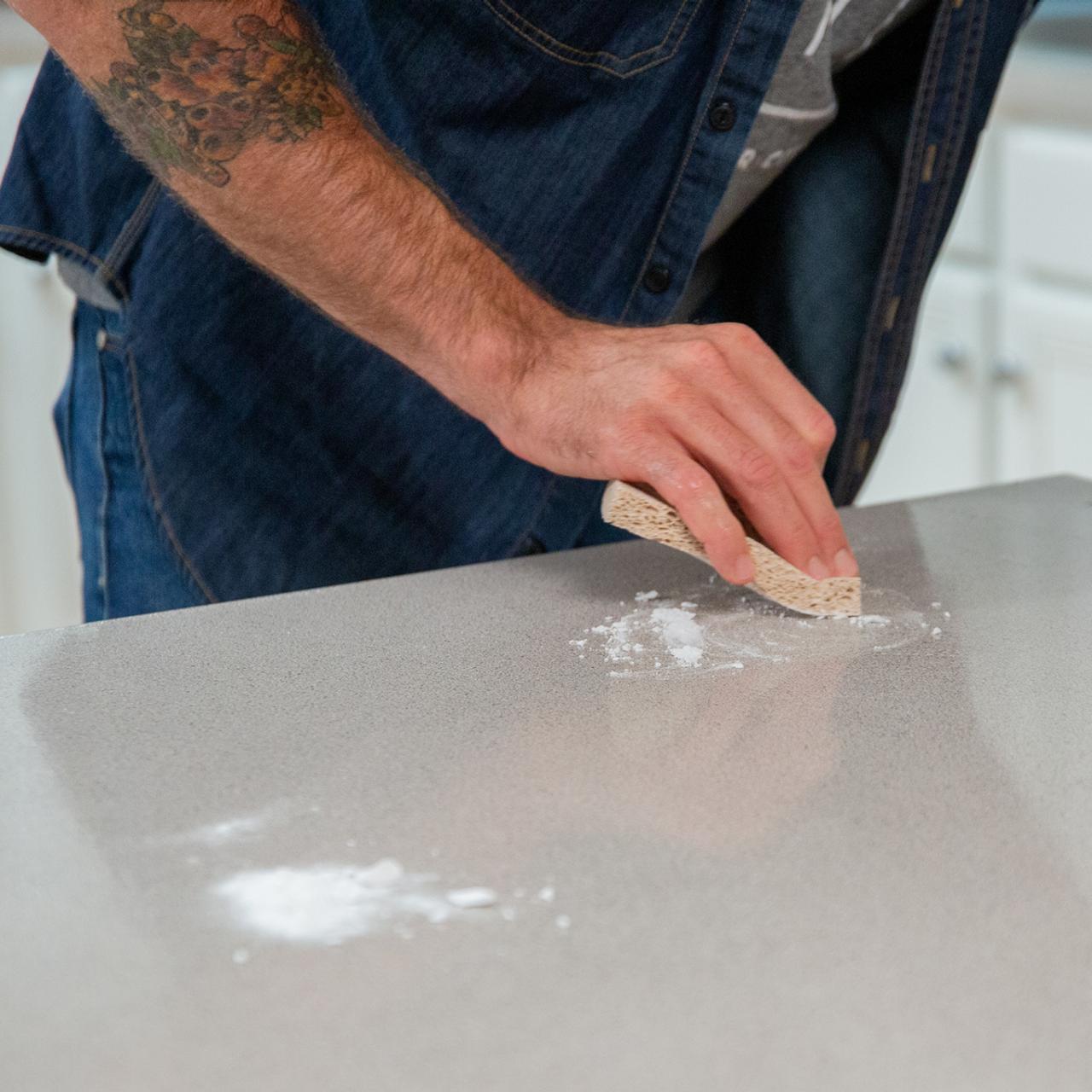
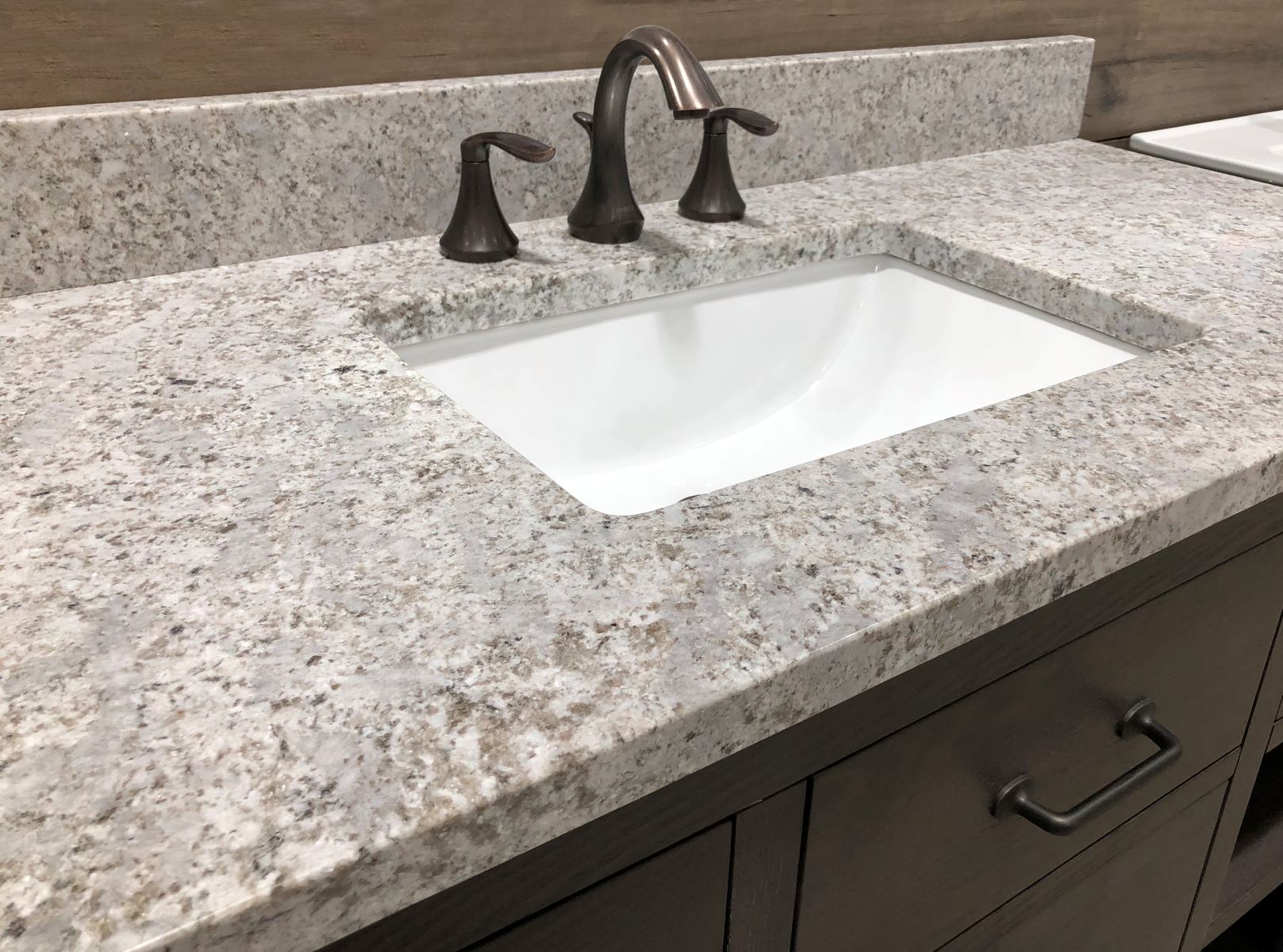
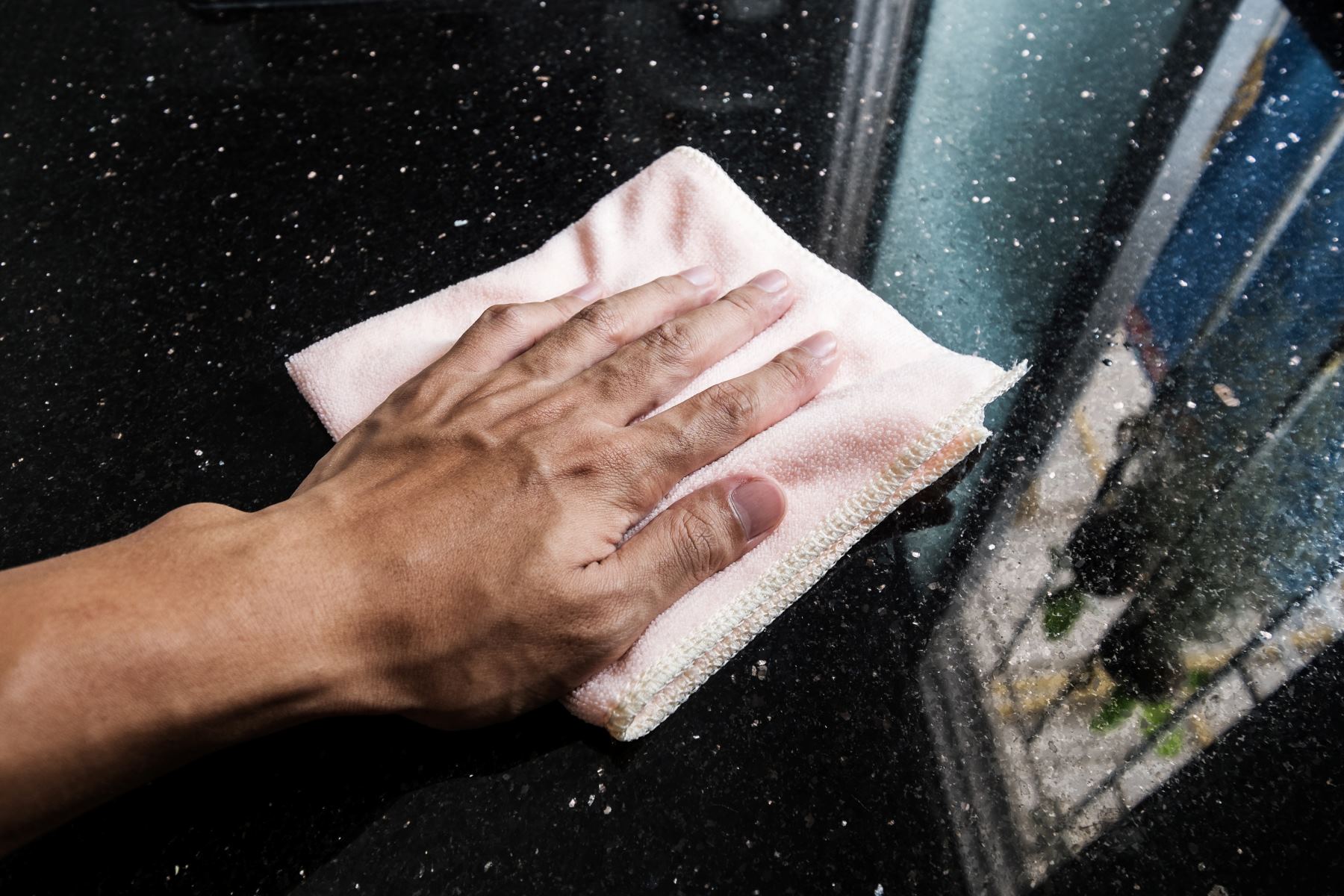
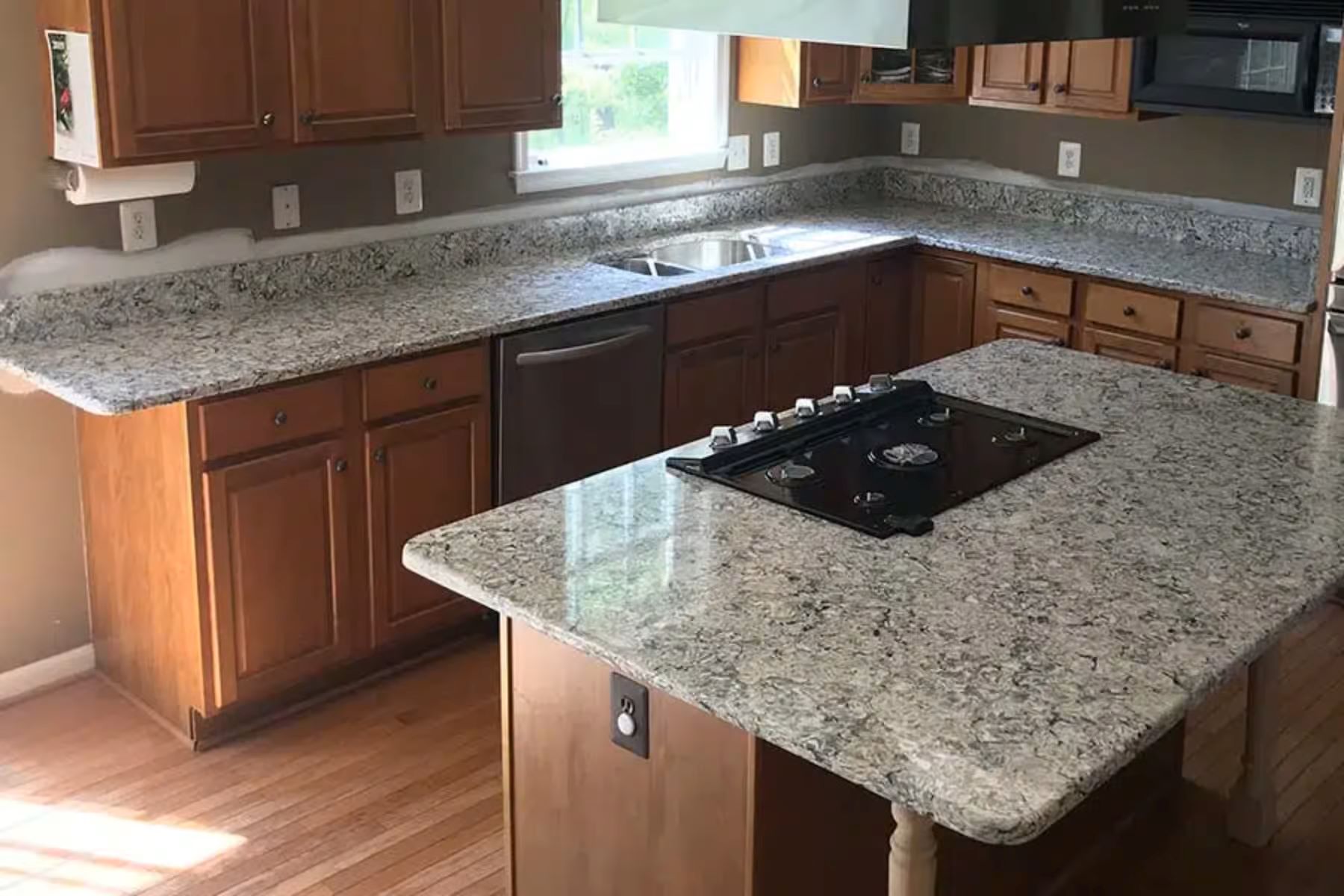
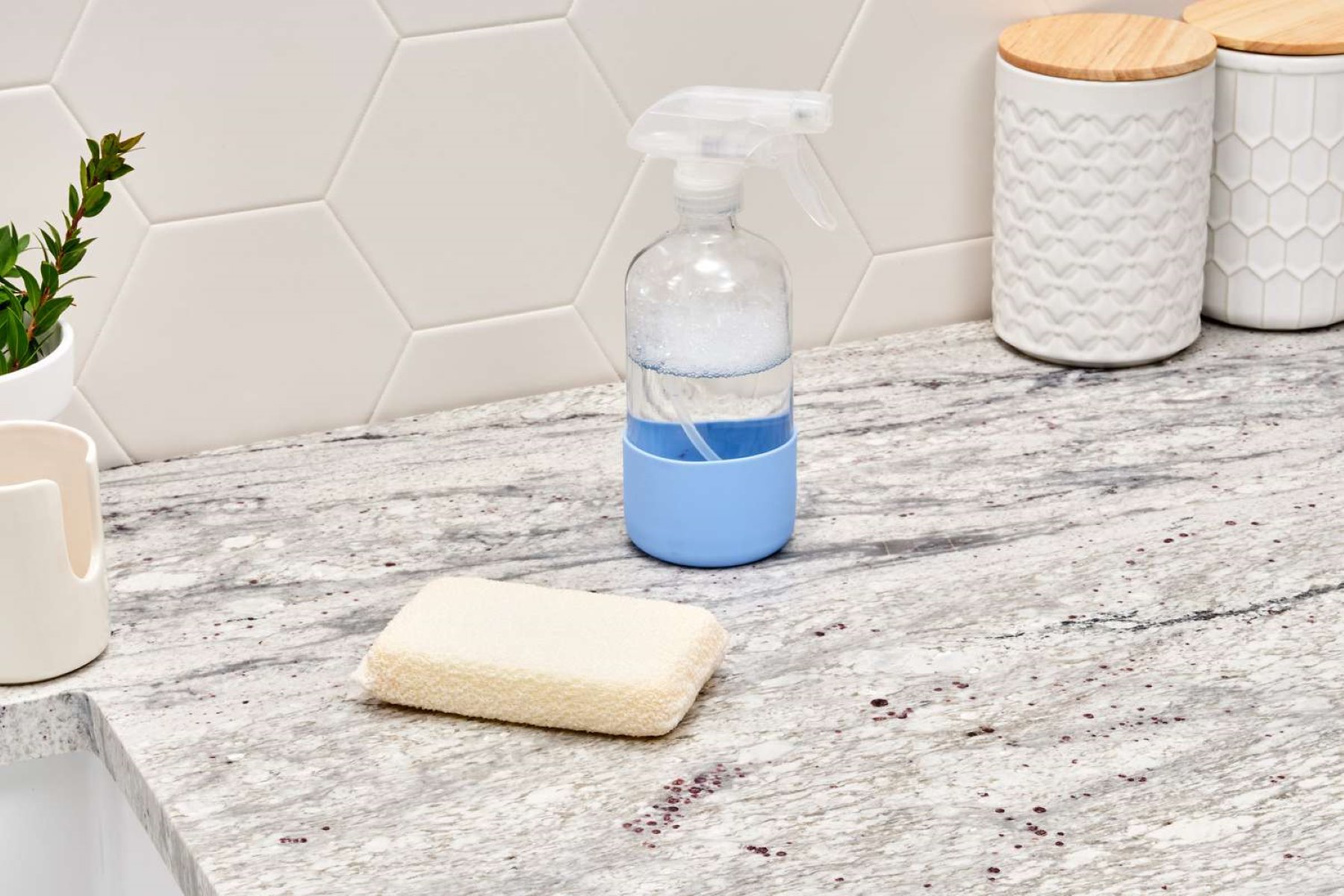
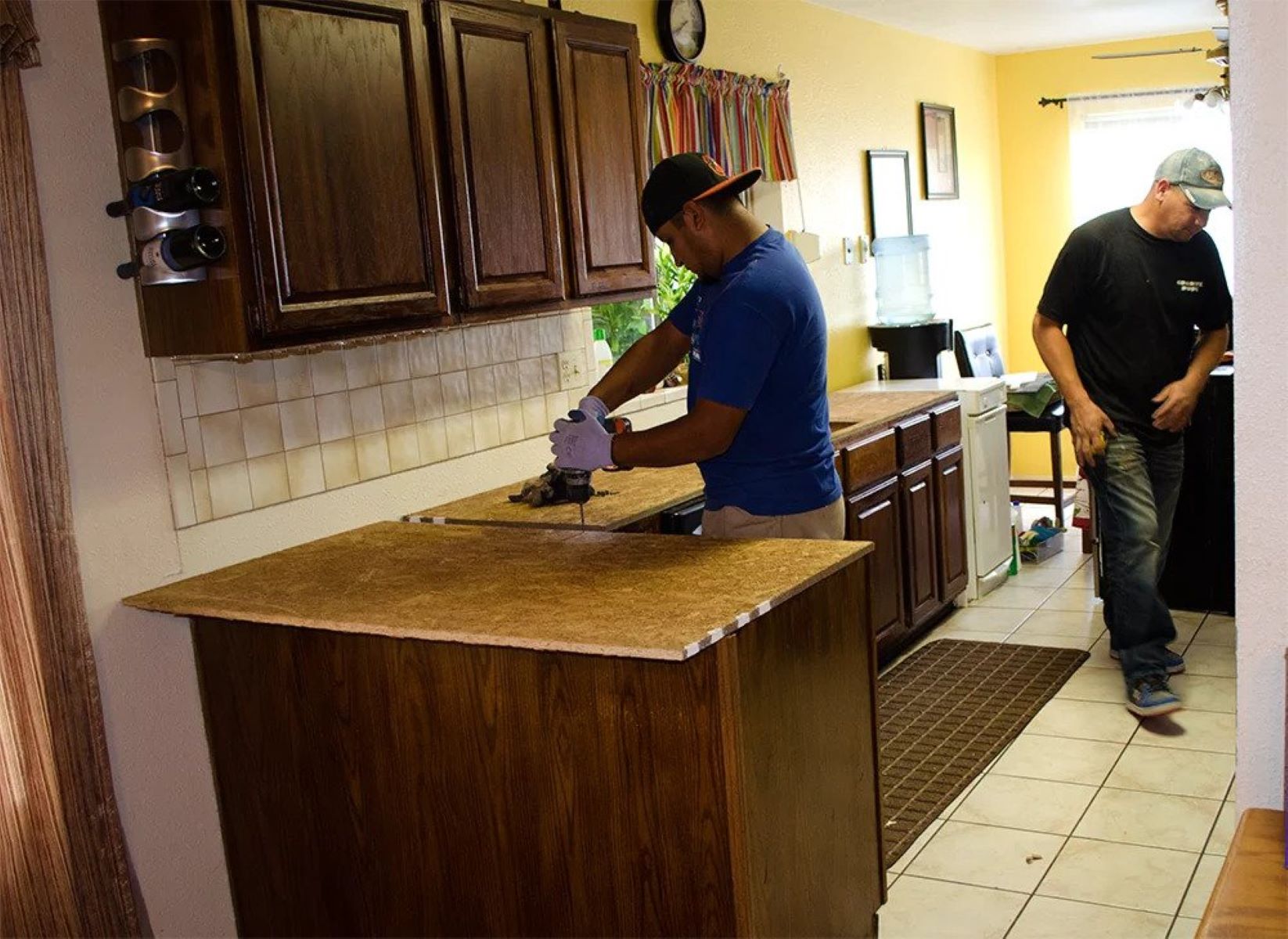
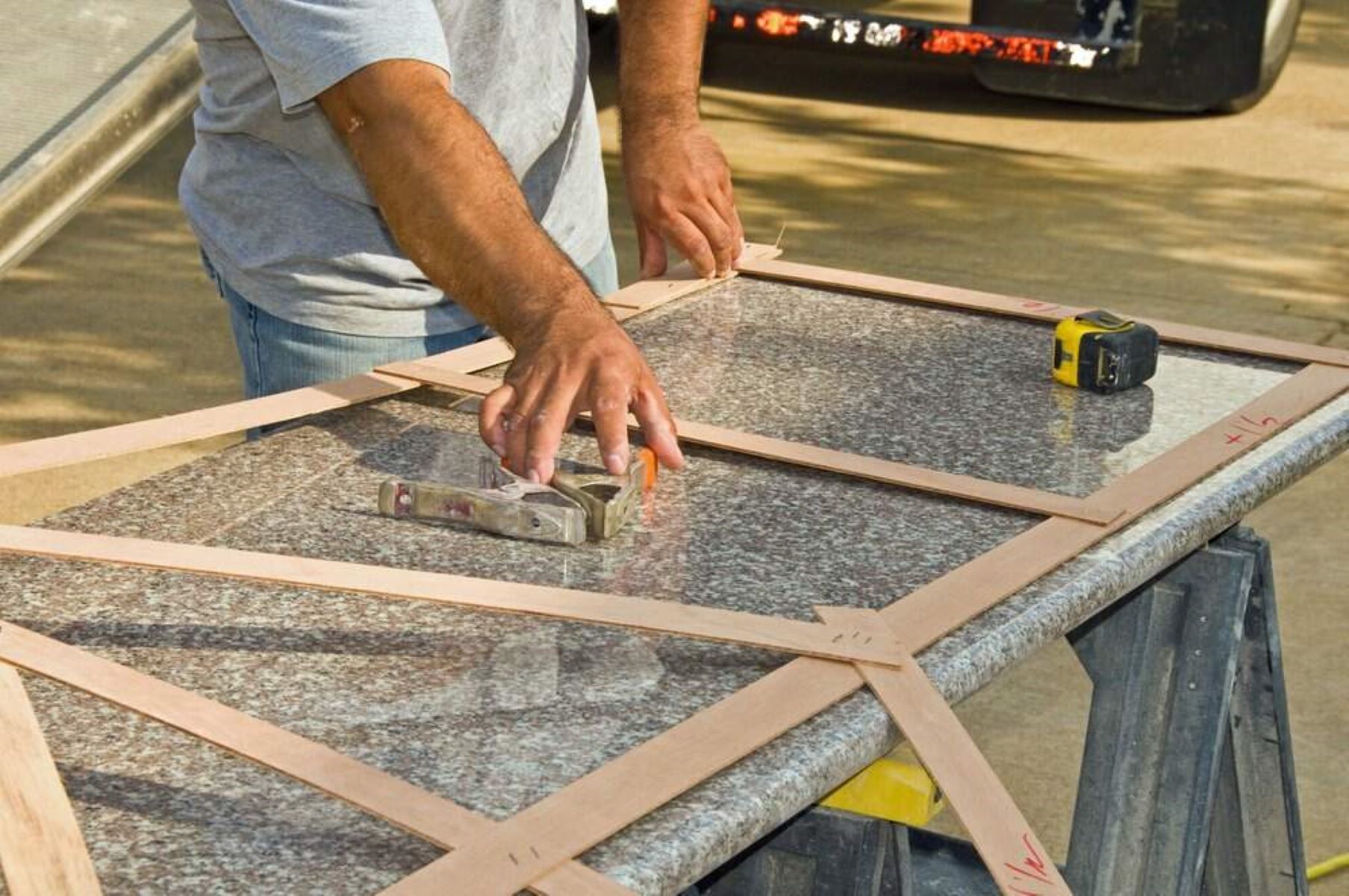
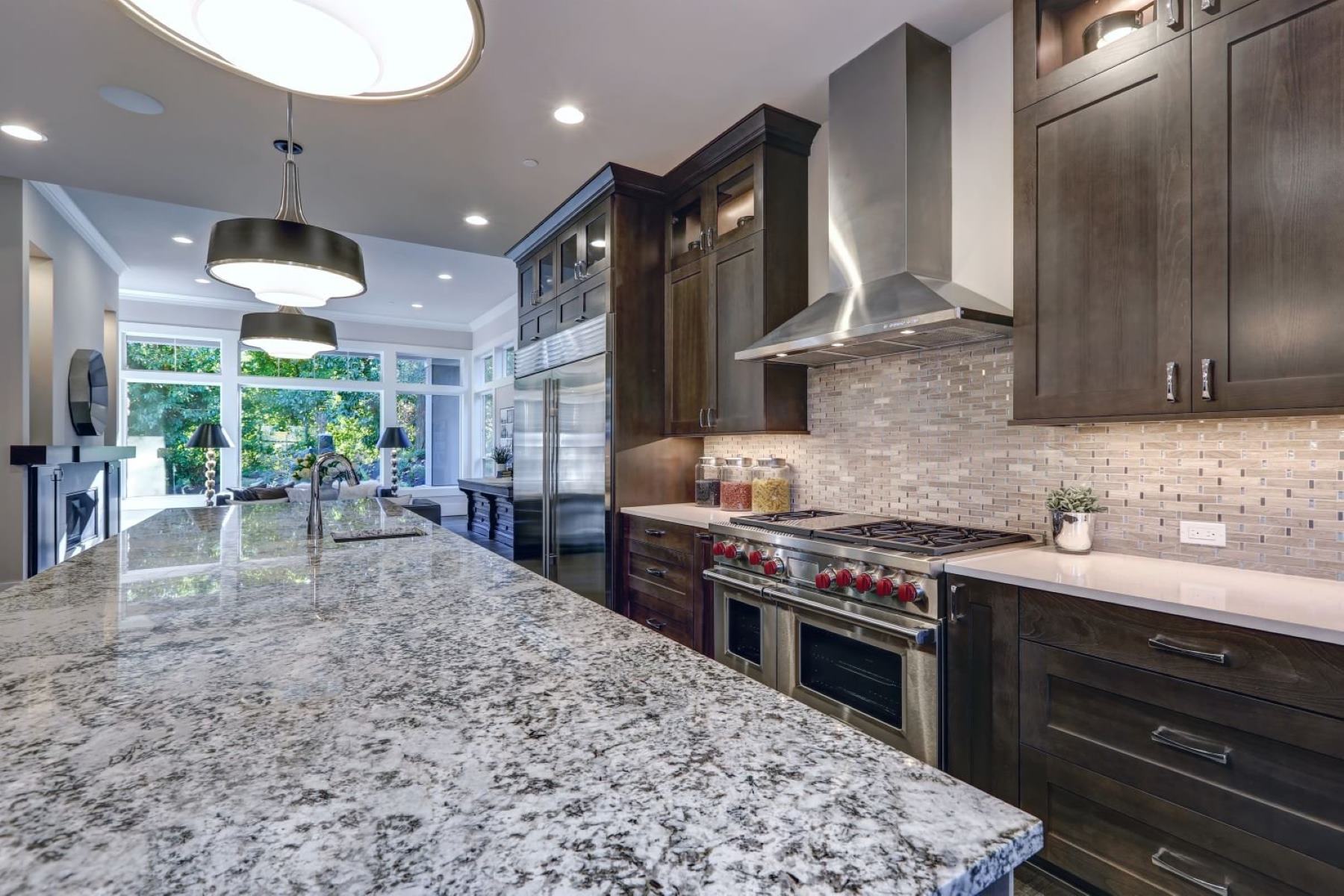

0 thoughts on “How Do You Clean Granite Kitchen Countertops”